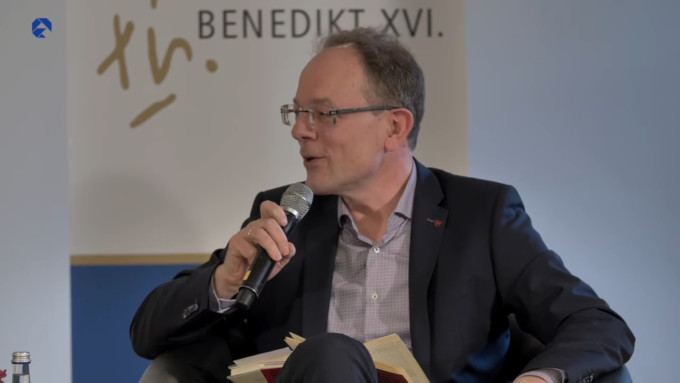
English Version Below.
Alcuni giorni fa il vescovo di Essen, Franz-Josef Overbeck, aveva annunciato la creazione in diocesi di un «gemeinsamer Rat» composto da preti e laici – come concretizzazione nella Chiesa locale dei processi sinodali in atto a livello nazionale e globale.
Molto rapidamente, sul sito tedesco della rivista Communio, Jan-Heiner Tück, ordinario di teologia dogmatica presso la Facoltà cattolica di teologia dell’Università di Vienna, è intervenuto per stigmatizzare la scelta del vescovo. Muovendo quattro critiche di fondo (qui).
1) Il Consiglio di Essen viene costituito prima del termine del Sinodo della Chiesa cattolica sulla sinodalità; ironicamente Tück si chiede se Overbeck con questa decisione non «voglia passare alla storia come il pioniere della Chiesa dei Consigli in Germania. 2) Dati i ripetuti moniti che Roma ha mosso verso il Cammino sinodale tedesco, non da ultimo quello che riguarda la costituzione di un Consiglio sinodale nazionale, il comportamento del vescovo di Essen sarebbe velatamente ostile verso la Curia romana. 3) Il teologo tedesco nota poi che esistono già i consigli presbiterale e diocesano e che, quindi, la creazione di un terzo consiglio non farebbe altro che appesantire le strutture della diocesi. Inoltre, nota che il vicario generale farebbe sì parte del «gemeinsamer Rat» ma senza diritto di voto. 4) Infine, Tück guarda al successore di Overbeck chiedendosi se questo dovrà necessariamente continuare sulla linea del predecessore, e tenersi il pacco del «gemeinsamer Rat» – oppure, potrà fare ricorso alla sua libertà episcopale e scegliere per un altro stile di guida della diocesi.
La prima critica è senza sussistenza, da un lato, e irrispettosa, dall’altro. La quarta riguarda sostanzialmente ogni successione episcopale in una diocesi – ci sono vescovi, anche di casa nostra, che per esempio hanno dato vita a istituzioni costosissime lasciando poi gestione e debiti ai loro successori (che di libertà ne hanno avuta ben poca in materia…). In questo caso, il richiamo del teologo è fazioso quantomeno come lo sarebbe ai suoi occhi la decisione di Overbeck. E comunque, è molto più semplice sciogliere un consiglio come quello voluto da Overbeck che un ente con personalità giuridica come una università diocesana.
La terza critica formalmente è lecita, ma al tempo stesso mette a tema proprio il problema a cui il vescovo di Essen cerca una soluzione: preti e laici in una diocesi mai lavorano, pensano e istruiscono processi di decisione insieme. Questo modello non ha funzionato fino a oggi, riproporlo significa far arenare in maniera inesorabile il pensiero teologico e le pratiche pastorali nelle secche del Codice di diritto canonico. Per quanto riguarda la partecipazione senza diritto di voto del vicario generale al «gemeinsamer Rat», non vi è alcun vulnus tale da preoccupare un teologo: infatti, tenendo conto della funzione propria al vicario generale, se questi votasse sarebbe come se il vescovo votasse due volte.
La seconda critica, ossia quella che un vescovo deve aspettare Roma e nulla può lecitamente finché da lì non arriva una parola, contraddice l’insieme del processo sinodale globale e dimentica che il vescovo ha una libertà di giurisdizione nel governo della sua Chiesa locale.
Se convocare insieme preti e laici per sostenere un vescovo nella guida di una diocesi cattolica significa una fuga in avanti personale e solitaria «che non conduce a nulla di buono», allora bisogna proprio dare ragione a Bismarck: i vescovi cattolici sono meri funzionari del sommo pontefice romano. Non proprio una bella immagine del ministero episcopale in una Chiesa cattolica che, secondo il sommo pontefice, vuole/deve essere sinodale.
The Theologian’s Concerns
Just few days ago, the Bishop of Essen Franz-Josef Overbeck announced the creation in the diocese of a “gemeinsamer Rat” (Common Council) composed of priests and laity. The Council aims to realize in the local Church the synodal processes taking place nationally and globally.
Very quickly, on the German website of the journal Communio, Jan-Heiner Tück, professor of dogmatic theology at the Catholic Theological Faculty of the Vienna University, has posted an article to stigmatize the bishop’s decision. He makes four basic criticisms (here).
1) The Council is being formed before the end of the Synod on Synodality of the global Catholic Church; with a good deal of mockery, Tück wonders whether Overbeck with this decision “wants to go down in history as the pioneer of the Church of Councils in Germany”. 2) Given Rome’s repeated warnings toward the German Synodal Way, not least the one regarding the establishment of a national Synodal Council, the behavior of the bishop of Essen would be veiledly hostile toward the Roman Curia. 3) The German theologian notes that presbyteral and diocesan councils already exist and that, therefore, the creation of a third council would only burden the structures of the diocese. Furthermore, he notes that the vicar general would indeed be part of the “gemeinsamer Rat” but without voting rights. 4) Finally, Tück looks at Overbeck’s successor wondering whether he will necessarily have to continue along the line of his predecessor, and keep the burden of the “gemeinsamer Rat”- or, he may make use of his episcopal freedom and choose for another style of leadership in the diocese.
The first criticism is without subsistence and insolent. The fourth one at the end regards any episcopal succession in a diocese – there are bishops, even Italian, who, for example, started very expensive institutions leaving then management and debts to their successors (who had very little freedom in the matter…). In this case, the theologian’s criticism is at least as partisan as Overbeck’s decision would be. And in any case, it is much easier to dissolve a council like the one Overbeck has established than an entity with legal personality like a diocesan university.
The third criticism formally is legitimate, but at the same time it brings into light the very problem to which the bishop of Essen seeks a solution: priests and laity in a diocese never work, think and shape decision-making processes together. This model has not worked to date; to propose it again means to inexorably strand theological thinking and pastoral practices in the shallows of the Code of Canon Law. As for the vicar-general’s participation into the “gemeinsamer Rat” without voting rights, there is no such vulnus as to worry a theologian: in fact, taking into account the function proper to him, if the vicar-general voted it would be as if the bishop voted twice.
The second criticism, namely that a bishop must wait for Rome and nothing can lawfully happen until a word comes from there, contradicts the overall synodal process and forgets that the bishop has a freedom of jurisdiction in governing his local church.
If summoning priests and laity together to support a bishop in leading a Catholic diocese means a personal and solitary flight forward “that leads to no good”, then one really has nothing left than to agree with Bismarck: Catholic bishops are mere functionaries of the Roman supreme pontiff.
Not exactly a pretty picture of episcopal service in a Catholic Church that, according to the supreme pontiff himself, wants/has to be synodal.


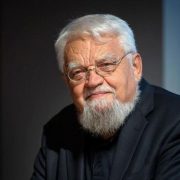
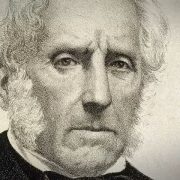
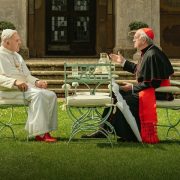
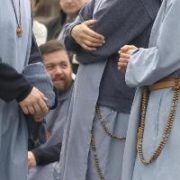
Leggendo i commenti, mi viene in mente un precetto (forse di un padre della chiesa?): “Credere, Obbedire, Combattere”.
František Hranáč , i vescovi non sano come fermare il tramonto del SACRO- per cui son loro responsabili, perciò cercano l’aiuto dai laici. Che vergogna! Dove è la loro pieneza dello Spirito?
“ironicamente Tück si chiede se Overbeck con questa decisione non voglia passare alla storia come il pioniere della Chiesa dei Consigli in Germania”. È proprio la chiesa dei Soviet!
Il problema è un altro: la chiesa ( minuscola) sinodale non esiste . La Santa Madre Chiesa è gerarchica e così per diritto divino e così tornerà dopo la sbornia conciliare! Fatevene una ragione…